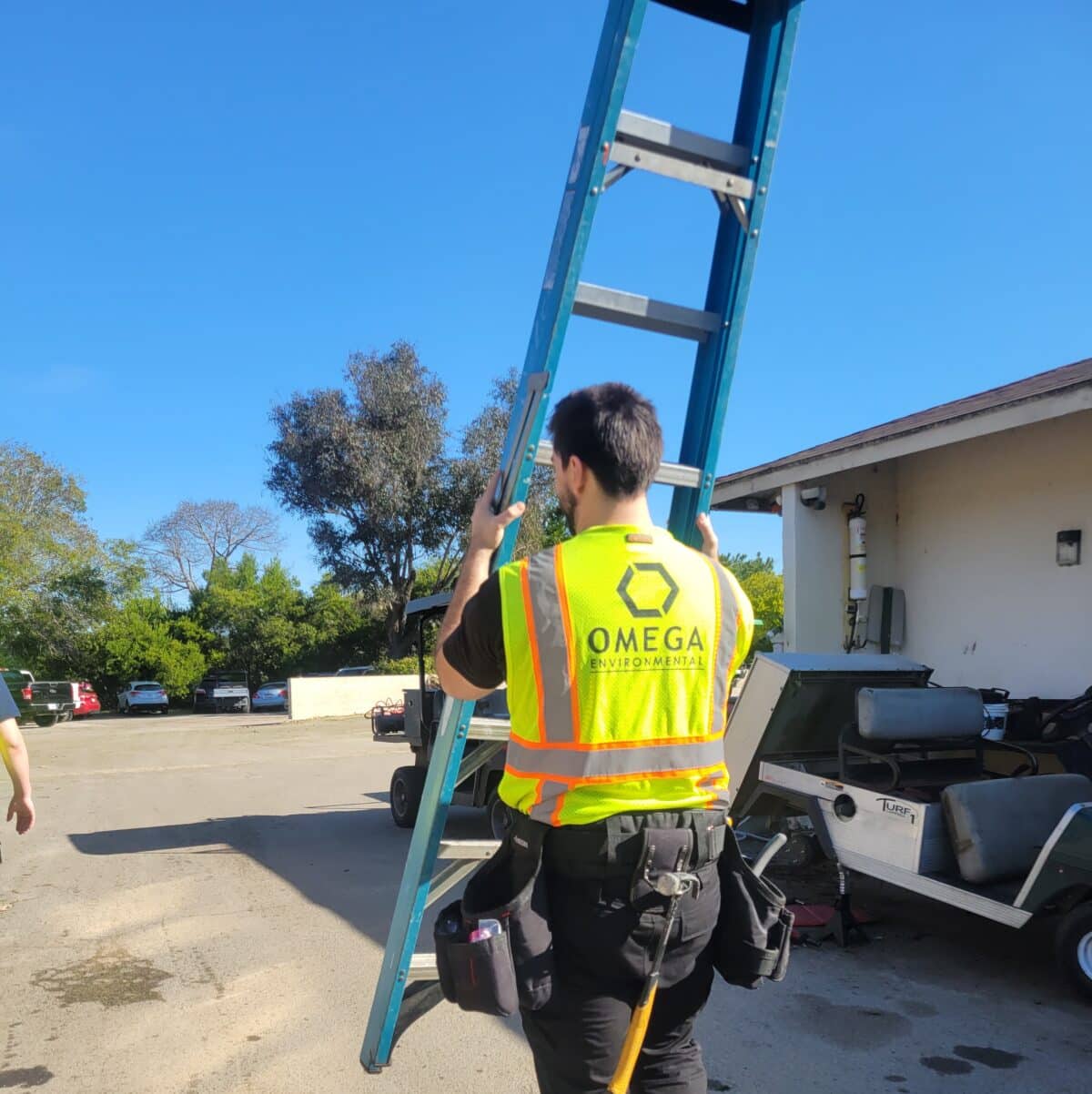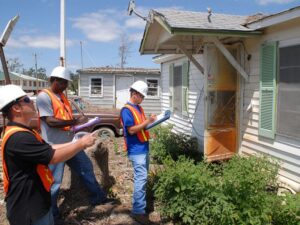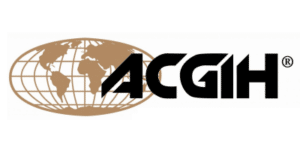Trusted Environmental Experts: Navigating Risk Assessments

As stewards of public welfare, risk managers find themselves at the crossroads of protecting communities and ecosystems from potential environmental threats. In this blog post, we delve into the critical reasons why a trusted environmental expert is essential for effective risk assessments. Additionally, we provide an actionable step-by-step checklist for risk managers to identify and engage with the right environmental experts.
The Must Haves in an Environmental Expert: An Actionable Checklist for Risk Managers
Identifying the right environmental expert is a multifaceted process. Use this actionable checklist as a guide to navigate the selection process effectively.
1. Define Project Scope and Objectives
- Clearly outline the scope and objectives of the environmental risk assessment project.
- Identify specific goals, desired outcomes, and any unique considerations for the project.
2. Develop a Comprehensive Request for Proposals (RFP)
- Prepare a detailed RFP document encompassing project details, scope of work, objectives, deliverables, timeline, and budget constraints.
- Clearly articulate any specific qualifications or criteria required from an environmental expert.
3. Evaluate Regulatory Compliance Expertise
- Assess the expert’s in-depth knowledge of local, state, and federal environmental regulations.
- Review their track record in ensuring compliance and navigating regulatory complexities.
4. Assess Site-Specific Experience
- Examine the expert’s demonstrated expertise in conducting assessments tailored to specific sites and their unique challenges.
- Verify their track record of successfully addressing environmental risks in diverse settings.
5. Scrutinize Communication Skills
- Evaluate the environmental expert’s ability to communicate complex environmental information clearly and concisely.
- Assess their capability to facilitate effective dialogue with communities, agencies, and other relevant stakeholders.
6. Verify Technological Proficiency
- Confirm the expert’s familiarity with cutting-edge technologies for data collection, analysis, and monitoring.
- Ensure their capability to leverage technological advancements for efficient and accurate risk assessments.
7. Evaluate Analytical Skills
- Assess the expert’s analytical capabilities to interpret complex environmental data.
- Confirm their ability to derive actionable insights from data to inform risk management strategies.
8. Consider Public Health Awareness
- Ensure the environmental expert has an understanding of the potential impact of environmental risks on public health.
- Confirm their ability to incorporate public health considerations into risk assessments and mitigation plans.
9. Gauge Proactive Approach to Emerging Contaminants
- Evaluate the expert’s awareness and preparedness to deal with emerging contaminants and evolving environmental challenges.
- Confirm their adaptability to incorporate new information and technologies into risk assessment methodologies.
10. Verify Legal and Regulatory Liaison Skills
- Confirm the expert’s proficiency in liaising with regulatory bodies and understanding legal aspects of environmental risk management.
- Verify their track record of successfully navigating legal complexities associated with environmental assessments.
11. Assess Community Engagement and Trust-Building:
- Evaluate the expert’s ability to engage with communities and build trust through transparent communication.
- Assess their skills in addressing public concerns and fostering collaboration between agencies and stakeholders.
Environmental Experts Licenses and Certifications: Qualifications that Matter
When seeking out environmental experts for risk assessments, it’s crucial to consider the array of licenses and certifications that attest to their qualifications. These credentials are not merely checkboxes; they are verifiable indicators of an expert’s commitment to excellence and expertise in specific areas. Here are some key licenses and certifications that can provide a strong foundation for risk managers to evaluate:
- Professional Engineer (PE): The PE license stands as a testament to an expert’s compliance with rigorous education, experience, and examination requirements in the field of engineering. It signifies a commitment to the highest standards of professionalism and competence.
- Certified Environmental Professional (CEP): The CEP designation is a marker of comprehensive expertise in environmental science, law, and policy. Environmental experts with this certification demonstrate a holistic understanding of environmental issues and a dedication to staying abreast of the latest developments in the field.
- Certified Industrial Hygienist (CIH): CIH certification is a noteworthy qualification for experts concentrating on assessing workplace environmental risks. It not only showcases proficiency in industrial hygiene practices but also underscores a commitment to ensuring safe and healthy work environments.
- Licensed Site Remediation Professional (LSRP): The LSRP license is particularly pertinent in the realm of managing site remediation projects. Professionals with this credential bring a wealth of experience in handling contaminated sites, ensuring compliance with regulatory standards, and effectively navigating the complexities of site remediation.
- Certified Hazardous Materials Manager (CHMM): The CHMM certification is a valuable qualification for experts tasked with managing hazardous materials and overseeing waste management processes. It underscores a professional’s ability to navigate the complexities of hazardous material handling and disposal with an eye on environmental stewardship.
- OSHA HAZWOPER Certification: The CHMM certification is a valuable qualification for experts tasked with managing hazardous materials and overseeing waste management processes. It underscores a professional’s ability to navigate the complexities of hazardous material handling and disposal with an eye on environmental stewardship.
- Certified Professional Environmental Auditor (CPEA): The CPEA certification is a mark of expertise in environmental auditing and compliance management. Experts with this certification are well-versed in evaluating organizational environmental performance, ensuring adherence to regulatory standards, and driving continuous improvement in environmental practices.
- Geologist or Hydrogeologist License: For professionals focusing on geological aspects of environmental risk, a state-issued geologist or hydrogeologist license is a fundamental credential. It attests to their expertise in understanding subsurface conditions, groundwater dynamics, and geological factors influencing environmental risks.
- Certified Ecologist (CE): The CE certification is a recognition of specialization in ecology and biodiversity. Environmental experts with this credential possess a deep understanding of ecosystems, emphasizing their commitment to considering the broader ecological contexts in risk assessments.
In considering these licenses and certifications, risk managers gain insights into the specific expertise and professional commitment of environmental experts. These qualifications go beyond being mere checkboxes – they represent a commitment to excellence, ongoing professional development, and a dedication to upholding the highest standards in environmental risk management.
Use a Trusted Environmental Partner Like Omega to Lead Your Project to Success
Navigating environmental risk assessments requires a strategic and meticulous approach, with trusted environmental experts at the forefront. By following this actionable checklist, risk managers can ensure that the experts they engage possess the must-haves and qualifications necessary for effective risk assessment. In the dynamic landscape of environmental risk management, the right environmental expert is not just a partner; they are the linchpin in ensuring the resilience and sustainability of public agencies and the communities they serve.










